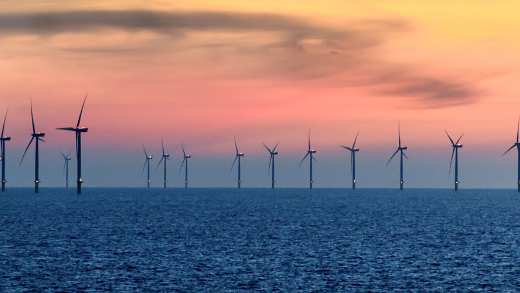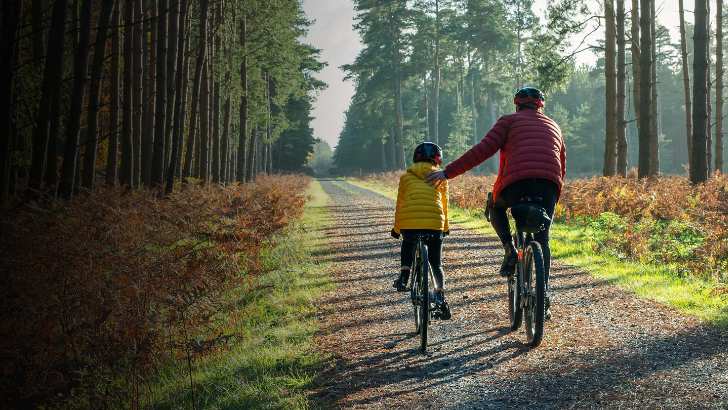
Climate change is occurring at an increasingly evident pace.
So, what’s the pace of climate action from eight of the world’s most advanced economies?
The Climate-Ready Index
Transcript for video Climate-Ready Index
David
Welcome, Claudine. It's fantastic to be here again for the launch of our Climate-Ready Index.
Claudine
Thanks, David. It is. Doesn't time fly? It's been three years already that we've been doing the index.
David
Absolutely. And the index of course looks across the G7 and Ireland, those big global economies. And it's vital that they are getting Climate-Ready and by ‘Climate-Ready’, when we're thinking about the index we're talking about emissions and mitigation, but we're also talking about adaptation and resilience, and the economies that we all live and work in, and our communities, too. It really is a holistic index. So, we're delighted to be sharing it again.
Claudine
Absolutely. And it's so important for our business. Both climate change and biodiversity is really important for the insurance sector, we as Aviva have always felt we've got a voice in this space, but we know we can't do it on our own.
So that's why it's really good for us to understand how different countries are doing, particularly countries where we have a presence - in Canada, for example, or Ireland and in the UK. But we want the UK to be the most Climate-Ready large economy by 2030. That's our aim.
So, David, you developed the index in the first instance. It's been three years. What do you think are the trends that you're seeing?
David
Well, I think it's really encouraging that what we've seen is, whether it's at the bottom of the index or the top, people are making progress. And three years is probably a good length of time to be able to judge that. That is genuinely encouraging because you hear a lot of negative news around this agenda.
But the fact is, people are putting in place much more progressive policies at a country level. We're seeing the concern amongst the general public continue to remain high right across all of the markets.
And really encouragingly, we're starting to see businesses take more action themselves to not just protect their interests for now, but also look at the amazing green growth opportunities that there are. Certainly, we’re seeing those in the UK. And that's also a great opportunity to tackle the social side of this too, to spread those opportunities, to equalise out some of those growth and economic benefits, across countries like the UK.
So I think we're seeing a lot of positive news as well as, of course, that underlying message of we have to go further and we have to go faster, but we've seen it can be done.
Claudine
Yes. Some really good examples. So Germany is still at the top, but because they've put the right regulations in place. They are putting money behind those regulations. They put £4 billion to tackle this and put the actions forward that they want to see.
So I think that's really good. And that's an example that we can take and probably try and replicate in other places. I mean, US still at the bottom, but actually with the Inflation Reduction Act, they are doing quite a lot in this space, particularly on the growth of the renewable energy side, and even some adaptation, because it's impacting them so much with the wildfires, with extreme weather. They are starting to think about that as well.
Less so about nature.
David
One of the really encouraging areas is business, where we've seen over this three year period a significant growth, not just in the concern that businesses have around climate change, but actually meaningful, tangible plans. So half of businesses now have a climate change plan to reduce their emissions. That's fantastic. But I'm also noticing that more and more businesses are investing in adapting to the changes that the climate will bring to their business.
Getting resilient, planning for that now so they can secure the long term success of the business. So, since 2022, when we started this, 17%, more organisations have adaptation plans for their operations and 21% more now have plans for their supply chain. So, I think we're starting to get it. And as that demand builds for business action through the supply chain, through investors like Aviva, this should help us with the transition, right?
Claudine
Yeah, absolutely. I think it's really encouraging to see that. I think for the first time in my career, actually seeing the rubber hit the road. And those actions and real things happening on the ground, as opposed to ‘let's set another target’, is about what we should be really, really focusing on as countries, as businesses, to be able to tackle climate change.
But as you said earlier, it's got to happen faster and it's got to get much, much bigger than it is.
David
And it is going to take all of us. So it's about businesses playing our part. But I think we're still seeing, in terms of consumers making their own lifestyle decisions, it's strong but not really growing.
People considering it in their purchasing decisions: 40% of people saying they're definitely doing that. But that's still not hitting that tipping point that we need.
I personally don't think we need to blame the consumer for that. It's about what can we do at a government level, at a business level, at a community level, to make these choices easy, and help people understand the long-term benefits and start to see the upside, the growth opportunities of facing into the climate challenge.
Claudine
Absolutely. And we've done this, you know, as governments and as businesses in the past. Stopping smoking was an interesting one, wasn't it? We had regulation come in to say, you can't smoke in places where it's public. And suddenly it just all switched. So, I think we need more examples like that, that we can have regulation behind, but then also businesses have an impact and understand their role that they're going to play and then we just go and get on with it. That's what we need.
David
Absolutely. And we're seeing that, what you'll see in the report this year, if people look at that, is actually some really great examples that we've pulled out of where either at a government, business or a community level, people are actually acting now and starting to feel the benefits for themselves. Whether that's 100% water treatment in Germany, protecting against some of the issues around clean water and sewage that we've seen in other places. Whether that's communities taking action in places like New York around heat challenges, which is a big, big part of this. Or businesses carving out whole new market niches, tapping into green growth opportunities.
So yeah, lots of reasons to be hopeful.
There's a theme here in the report this year around nature and adaptation that we've chosen to really spotlight. Why are those things so important when it comes to climate-readiness?
Claudine
Nature impacts all our businesses, and all our lives. If you think about pharmaceuticals, if you think about the food that we eat, everything around us is really, really dependent on nature, and those supply chains are very, very dependent on nature. I won't talk about that today because that's a huge topic! But actually, from a mitigation perspective, nature is a sink for carbon and has been naturally for many, many years.
Unfortunately, we've taken that sink away, by needing land to do other things. So, restoring those bits of nature which, at Aviva, we have funded to do in the UK with recreation of the temperate rainforests, things like protecting our peatlands, those things become really important because they are going to be the carbon sinks.
And without nature there is no Net Zero.
So I think the other thing that nature delivers for us is more on the adaptation side. Again, nature is a natural way to deal with things like flood risk, which we are doing across the UK - again, we are working with the Wildfowl and Wetland Trusts to recreate salt marshes, for example. Salt marshes, they grow quite quickly, and they are a natural way to protect ourselves from flood risk.
And those are the sorts of things that I think nature can bring as well. As well as health for us. People like being in nature, and being a part of that, and there have been many studies to say that is really good for our health. Both our mental health and our physical health.
So, we need to get the UK ready for all of these impacts that are to come in terms of climate change.
I really do believe we can do it, and I think it will be fantastic if we can deliver that.
Climate-Ready 2024 Index results
Climate-readiness is measured through eleven factors and supporting data points, weighted and organised into four pillars: Emissions and Mitigation, Environment and Adaptation, Economy and Business, and Society and Community (details are included in the Methodology in the full report).
By bringing together a set of deeply interrelated but often unhelpfully siloed topics, the Index hopes to illuminate the holistic breadth of the challenge of climate change, and drive co-ordinated responses across government, business and society.
Overall ranking
The third Climate-Ready Index indicates that the transition to a more climate-ready world is underway across the G7 and Ireland – all countries bar Canada have improved on their overall scores in 2024.
Businesses are taking more climate-ready actions than they were 12 months ago.
People are taking simple everyday climate-friendly actions but need support to make bigger lifestyle changes.
Overall progress across the Index is encouraging, but there is still more to do – countries need to go further and faster to ensure they are reducing their emissions in line with the 1.5 degrees Paris Agreement and taking action to adapt to already very visible climate change impacts.
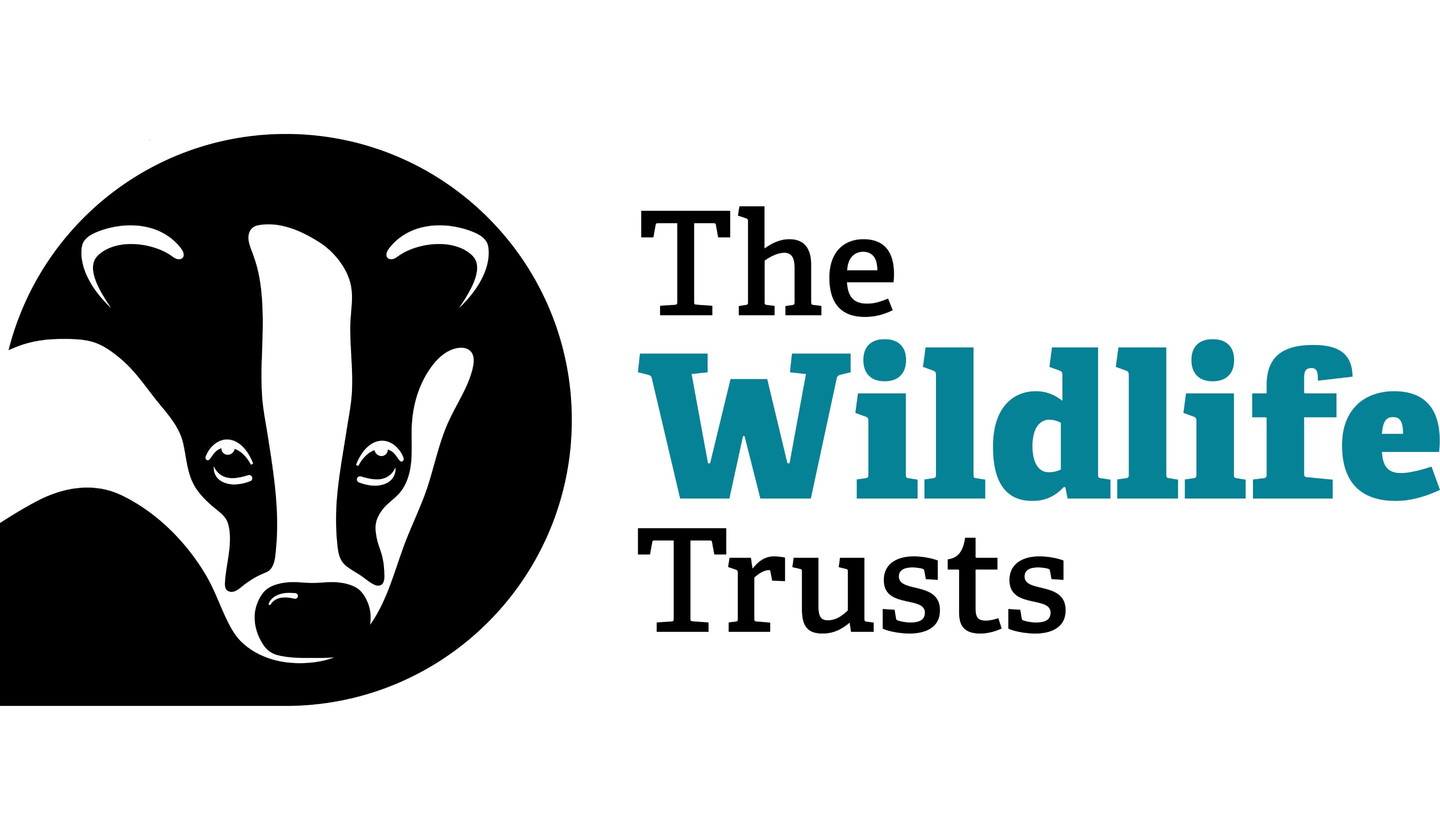
Being able to compare the UK to others and draw lessons from experiences of other countries through Aviva’s Climate-Ready Index is incredibly useful. We should all be drawing on best practice to make sure we seize the opportunity for greater economic and social security through an integrated approach to action on climate and nature.
The climate-ready model
Emissions
& Mitigation
Environment
& Adaptation
Economy
& Business
Society
& Community
Aviva’s policy asks
Aviva’s ability to become a Net Zero company by 2040 is contingent on governments taking policy action which drives the transformation of the financial system and wider economy. That is why Aviva continues to contribute to the policy debate.
In particular, we are calling on governments to:
Set legally binding Net Zero targets in line with 1.5C warming
To keep the goals of the Paris Agreement alive, we must reach Net Zero by 2050 globally.
Yet with just over 25 years to go, many countries do not have legally binding Net Zero commitments. Tackling climate change is a global effort and universal targets support a level playing field, so all countries must have legally binding Net Zero by 2050 targets.
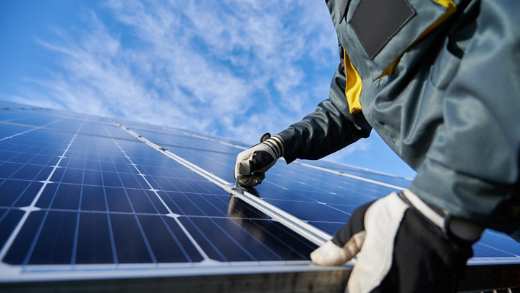
Back up Net Zero commitments with a national transition plan
Globally, we need to turn ambition into action.
For national Net Zero targets to be credible, they need to be backed up by clear, whole-of-economy transition plans with short, medium and long term targets. These should detail policy measures, fiscal incentives (including carbon pricing) and regulation across all economic sectors, and should demonstrate governance and accountability mechanisms for the delivery of the plan across all areas of government. National transition plans support private sector investment, but governments should be formally accountable for delivery.
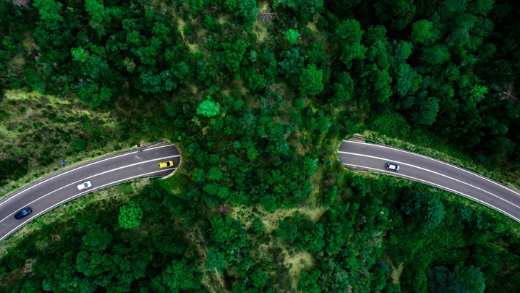
Introduce sustainability disclosure requirements for firms, including Net Zero transition plans
Ultimately, public finance alone will not be sufficient to meet the scale of the climate challenge.
The introduction of financial regulation and frameworks which supports alignment of private financial flows with a 1.5C pathway is therefore paramount. All countries should develop sustainability disclosure frameworks, which include reporting on climate risk and disclosure of transition plans. Crucially, these should draw from international standards to minimise fragmentation, reduce burden on firms and increase data comparability.
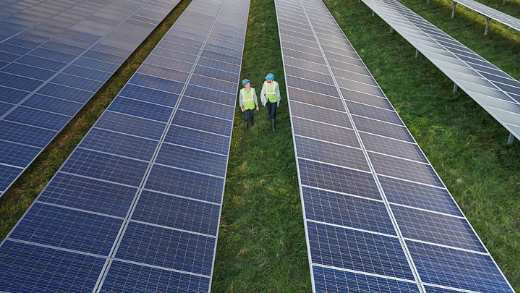
Unlock private finance for adaptation to build climate resilience
In 2024, the effects of climate change were once again laid bare.
We now have climate impacts posing a constant threat to lives and livelihoods. Meanwhile, just 2% of adaptation finance comes from the private sector, compared to over half for mitigation1. Governments should embed adaptation into national transition planning and conduct assessments of climate adaptation funding needs, including the role of the private sector.
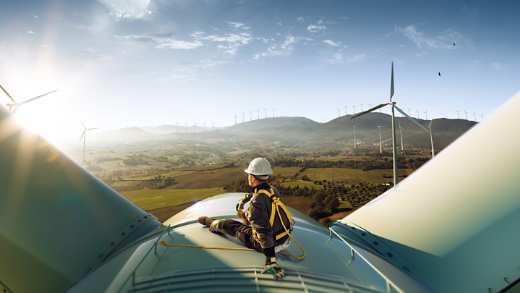
Push for integration of climate into the international financial architecture
As countries and firms undergo structural transformation to reflect the climate emergency, international bodies should too.
Multilateral organisations should develop transition plans for the alignment of their work and supervision with Net Zero and report annually on progress. Members of the international financial architecture – like the IMF and World Bank – should review their mandates and constitutions to include mention of the Paris temperature and adaptation goals.
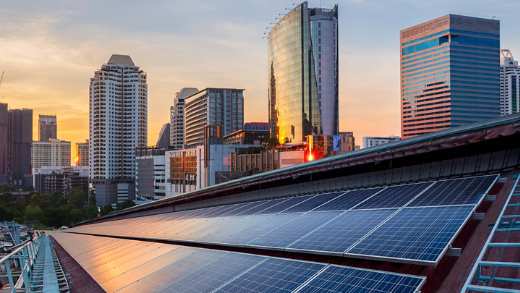
Develop and disclose national plans aligned with the Global Biodiversity Framework (GBF)
Nature plays a fundamental role in regulating our climate and helps us adapt to global warming.
However, these services are undervalued in economic systems which has led to its ongoing destruction. In 2022, parties at COP15 agreed the GBF – the clearest plan yet to halt and reverse biodiversity loss by 20302. Governments must turn pledges into action and develop national plans (NBSAPs) to align with the GBF. These plans should set out government policies to deliver the goals of the GBF, should be based on nature-positive sectoral pathways to drive action by the private sector, and should be fully integrated with national Net Zero transition plans.
2 UN CBD
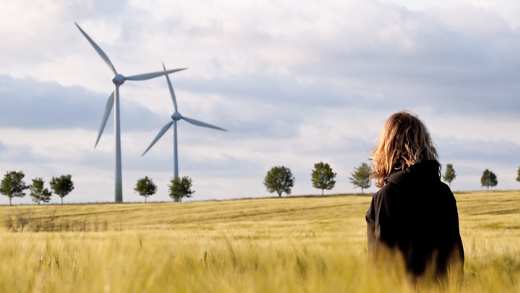
Working with experts on the Climate-Ready Index
Meet some of the experts

David Lourie
Managing Partner
Good Business
Good Business, founded in 1996, is a leading sustainability consultancy based in London. We work with organisations to deliver transformational change across environmental, social, and governance themes. Our work supports our clients to meet and exceed regulatory, societal, and consumer expectations, while successfully building their business and brand. From transition planning, nature strategy and carbon measurement, to materiality analysis, ESG reporting and world-class behaviour change programmes, we have the passion and experience to deliver the change that our clients, and the world, need.

Darren Yaxley
Director, Reputation and Business Research
YouGov
YouGov is an international online research data and analytics technology group with one of the world’s largest research networks. Offering unparalleled insight into what the world thinks. As innovators and pioneers of online market research, we have a strong reputation as a trusted source of accurate data and insights. Testament to this, YouGov data is regularly referenced by the global press, and we are the second most quoted market research source in the world.
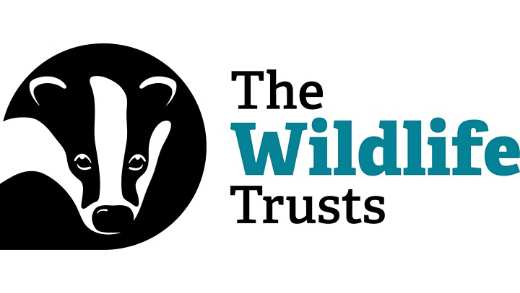
Kathryn Brown
Director of Climate Change and Evidence
The Wildlife Trusts
The Wildlife Trusts are a federation of 47 charities, 46 individual Wildlife Trusts and a central charity, the Royal Society of Wildlife Trusts. Together we have more than 900,000 members, 39,000 volunteers and 3,600 staff across the UK. We share a vision of nature in recovery, with abundant, diverse wildlife and natural processes creating wilder landscapes where people and nature thrive. Wildlife Trusts care for – and have restored – some of the most special places for wildlife in the UK. Collectively, we manage more than 2,300 nature reserves, operate 123 visitor and education centres and own 29 working farms. We undertake research, we stand up for wildlife and wild places under threat, and we help people access nature. We work with businesses who are committed to being nature positive and take action to help restore 30% of land and seas for nature by 2030.
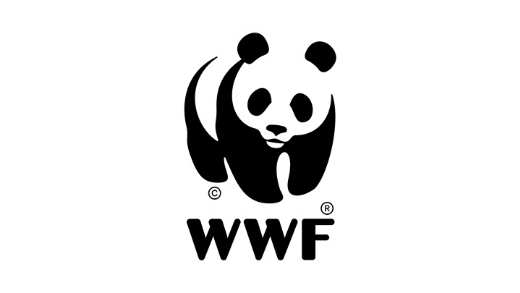
Alexandre Chausson
Nature-based solutions specialist
WWF UK
WWF UK WWF (World Wide Fund for Nature) is a global environmental charity. With nature in freefall, we’re urgently tackling the underlying causes that are driving the decline – especially the food system and climate change. And we’re finding solutions so future generations have a world with thriving habitats and wildlife. We’re working globally with governments, communities, and companies, such as Aviva, who have the will to act and the power to transform our world. We’re using our ground-breaking scientific research, our global influence, and the backing of our many supporters to make sure the natural world’s vital signs are recovering by 2030.

Christoph von Friedeburg
CEO
CF Energy Research-Consulting-Operations GmbH
CF Energy Research-Consulting-Operations GmbH, founded 2016, is a firm dedicated to supporting the transition to a decarbonised energy system. Activities range from following international research and dissemination of knowledge through commissioning of academic publications to contributions to reports by think tanks to financing and operating PV systems on homes and condominiums with simple, tailor-made and evolving business models. This integrative scope enables CF Energy GmbH to inform customers about real-life developments and in turn convert concepts into carbon-saving results on the ground.
Climate-Ready Index Report 2024
Download report hereAviva's focus on climate action
We were the first major insurance company to become carbon neutral in 2006, and for decades we’ve been working to help markets we operate in become more climate-ready.
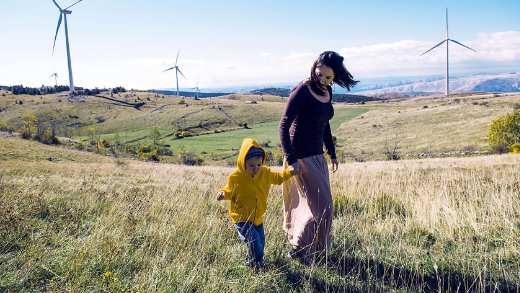
This starts with our own ambition...
to become a Net Zero company by 2040.

It continues as we use our scale...
as a major investor to focus on opportunities that support the transition to a sustainable future for People, Climate and Earth.
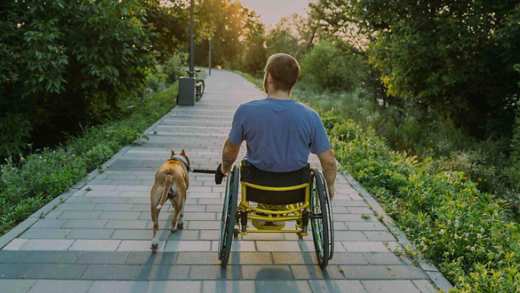
We already...
share 2% of profits annually with communities across UK, Canada and Ireland; including doing positive things to address climate change.
Reports and documents
Our sustainability news
